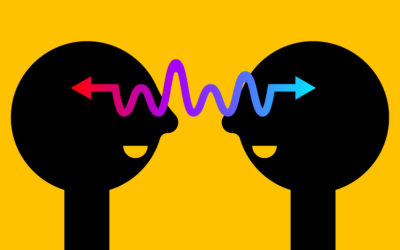Quick Hits
Daily brief research updates from the cognitive sciences

Sleeping well is essential to brain health
Sleep on i” is common advice for many reasons. Often to consolidate thoughts and help boost creativity. This is a well-known effect. We also know that sleep is the time that helps to detoxify and grow the brain and body, and I have reported on some of these effects in different posts. But this latest research, from the University of Bern, here in Switzerland, supports another hypothesis of sleep — namely that it helps with your emotions.
That sleep, particularly REM sleep (REM sleep is the light sleep phases often associated with dreaming), helps consolidate emotions has been long known. But these researchers found out precisely how this happens in brain cells themselves and this is pretty cool, I have to say.
So, what did they find?
First off, these researchers conditioned mice to two signals. One a fear signal and second, a safety signal. These are the two obvious big emotions in terms of survival and something that is present in all species of animal. They were then able to precisely track these signals in the mice.
What they then found during sleep was astonishing. They found that there was decoupling within neurons to these signals. Specifically, the cell body seemed to be deactivated whereas the dendrites the connecting arms of the neurons activated and processing the emotion. This, the researchers note translates into preferential processing in sleep of safety signals and avoidance of overgeneralising fear emotions which can become generalised anxiety — and they suspect potentially lead to anxiety disorders.
So, the brain needs sleep to process emotions and recorrect emotional signalling but specifically the decoupling of brain cells enables the processing of fear without generalising this. Clever old brain cells.
So, another, another, very good reason to get a good night’s sleep. If you are wondering how much — this latest research here answers that.

Andy Habermacher
Andy is author of leading brains Review, Neuroleadership, and multiple other books. He has been intensively involved in writing and research into neuroleadership and is considered one of Europe’s leading experts. He is also a well-known public speaker speaking on the brain and human behaviour.
Andy is also a masters athlete (middle distance running) and competes regularly at international competitions (and holds a few national records in his age category).
Reference
Mattia Aime, Niccolò Calcini, Micaela Borsa, Tiago Campelo, Thomas Rusterholz, Andrea Sattin, Tommaso Fellin, Antoine Adamantidis.
Paradoxical somatodendritic decoupling supports cortical plasticity during REM sleep.
Science, 2022; 376 (6594): 724
DOI: 10.1126/science.abk2734
More Quick Hits
The Surprising Effectiveness of Coaching in Diminishing Burnout Symptoms
Different areas of the brain are associated with empathy – this new research shows how brain regions synchronise to induce empathic responses.
When Love Overrides Other Needs
Different areas of the brain are associated with empathy – this new research shows how brain regions synchronise to induce empathic responses.
The Negative Social Impact of Dealing with AI in the Workplace
Different areas of the brain are associated with empathy – this new research shows how brain regions synchronise to induce empathic responses.
How the Gut Influences Brain Development in Babies
Different areas of the brain are associated with empathy – this new research shows how brain regions synchronise to induce empathic responses.
Your Brain’s Own Cannabinoid Molecules Calm You Down
Different areas of the brain are associated with empathy – this new research shows how brain regions synchronise to induce empathic responses.
Role of Dopamine in Speed and Accuracy of Decisions
Different areas of the brain are associated with empathy – this new research shows how brain regions synchronise to induce empathic responses.






